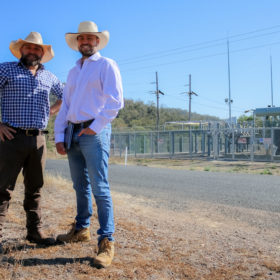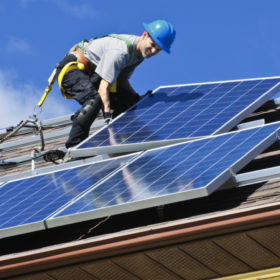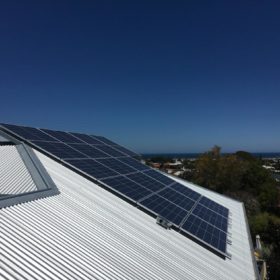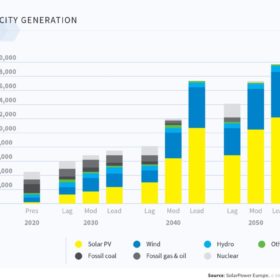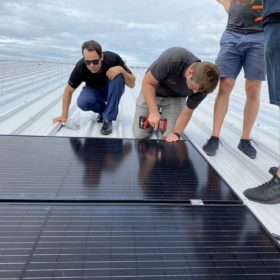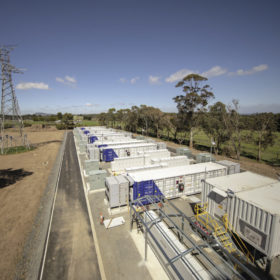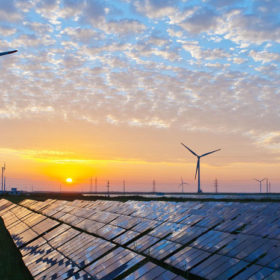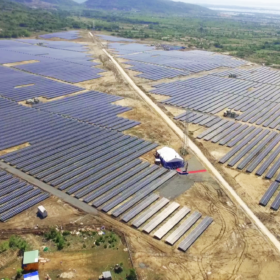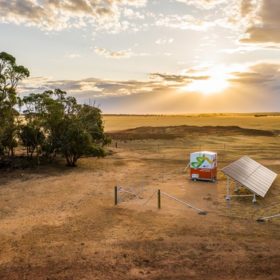Code red! Agricultural solar hit by NSW Environmental Planning Policy Amendment
The New South Wales solar industry hailed last week’s amendment to the state planning laws, which allows installation of larger rooftop solar systems on households and businesses without council approvals. But omission of a previous enabling clause from the legislation will add cost and delays to ground-mounted solar developments of more than 30 kW.
NSW amends laws to pave the way for rooftop solar and big batteries
The New South Wales government has amended legislation to allow for larger-scale solar systems to be installed on homes and commercial buildings without council approval and to facilitate the installation of utility-scale batteries.
Power Ledger, Nicheliving partner for large-scale solar energy trading rollout in WA
More than 100 apartments in Western Australia will get access to blockchain energy trading technology on the back of a three-year deal signed by Power Ledger and developer Nicheliving.
Australian solar owners are saving more while staying at home because of Covid-19
Analyzing its fleet of solar sites, Solar Analytics has found that energy consumption in households due to Covid-19 confinement is up only slightly, if at all. While this is good news, the great news is that the onsite consumption of free solar power in these households is up significantly.
Europe can be 60% powered by solar before 2050
A study by Solarpower Europe and LUT: Three different cases for the transformation of the European energy system were examined in this study. The more ambitious scenario with 100% renewable energy and a high proportion of PV might be cheaper than less ambitious paths to a green Europe.
Shift to quality leaves metal roofs primed for ‘direct attach’ solar installs
With its abundance of metal rooftops and an increasing appetite for quality components and installations, the Australian rooftop solar segment is primed for the adoption of “direct- attach” mounting systems. U.S.-based S-5! believes this is the case and is working with installers and EPCs to increase awareness of its PVKIT 2.0 – which it claims allows for faster and less complicated installations.
‘Super-peak’ firming contracts open up new opportunities for battery storage
What makes this contract different is it covers only the high-demand hours when rooftop PV output is low, opening new markets for on-demand energy resources, such as battery storage. This and other standardized hedge contracts designed for clean energy technologies are hosted on Renewable Energy Hub’s digital firming marketplace.
Another remarkable year: 2019 saw renewables records tumble
With 4.4 GW of new renewable energy capacity installed and almost a quarter of Australia’s electricity supply now coming from renewable energy sources, 2019 was another year of extraordinary growth, according to the latest edition of the Clean Energy Australia report. As rooftop solar continued its record-breaking streak, big PV made up more than two-thirds of Australia’s large-scale renewable energy capacity installed last year. Meanwhile, the battery storage sector started to gain momentum.
Vietnam finally unveils new FITs for large-scale, rooftop, floating PV
Hanoi has set new feed-in tariff rates for utility-scale, rooftop and floating PV projects, ending a long period of policy uncertainty. The government has announced the new rates, which are broadly in line with industry expectations, roughly 10 months after the expiration of its old tariffs.
Western Australia, the stand-out state for stand-alone systems
Before social-distancing became a thing, Western Australia stood apart from the rest of the country. Defined by remoteness, the state is beginning to embrace its identity, and cure itself of network headaches at the same time, with the uptake of stand-alone power systems (SPS).
